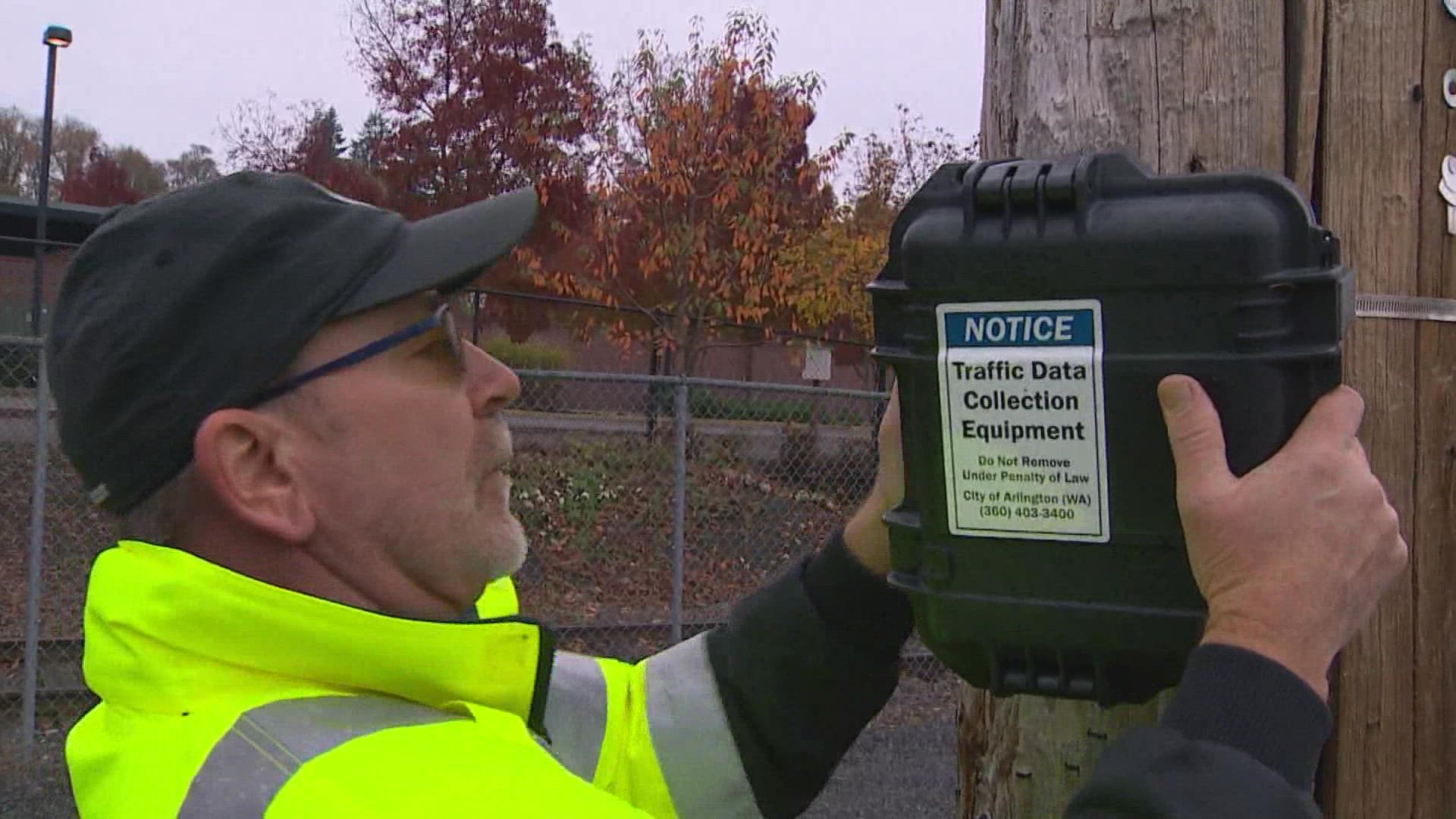ARLINGTON, Wash. — A new sort of "undercover cop" has arrived in Arlington. It's a subtle new way to track how fast people are driving and it enables police to see exactly where they're doing it.
Arlington Police Department volunteer Ed Krell acts as a covert crimefighter these days. He sets up clandestine devices across the city that track speeds while hiding in plain sight.
"It’s called covert radar,” he said.
Strapped to a power pole, the unassuming device, about the size of a lunchbox, quietly captures the speed of every vehicle that passes by.
"It keeps everybody honest as far as their speed," Krell said.
The data is crunched and presented to police who can determine whether a particular street should have a speed patrol. It can even tell police which hours of the day are best to nab speeders.
Krell said it gives law enforcement a much more accurate picture of how fast people are really driving.
"People don’t even know it’s there so they will actually drive like they normally do," he said.
The device does not capture personal information, nor does it generate any tickets. It only collects data that police use to pinpoint problem areas so they can post speed patrols, if necessary.
More often than not the radar finds most people driving within the posted speed limit.
A recent analysis of drivers near Presidents Elementary School found just 2% traveling over the speed limit. Findings like that keep locations "off the radar" for police.
With increased crime and decreased staffing, the radar system allows police to focus their forces specifically on problem areas – saving time and resources.
"The ability to have this gives us the data we need to move our patrol efforts in the correct areas," said Lt. Mike Gilbert. "That is a great tool for us to have."
A handful of the devices are typically deployed in school zones and places where the public has complained. The total cost is less than $5,000.
The devices perform like a 21st century undercover cop gathering evidence to help police protect the people.
"It gives them the true picture of how people are actually driving," Krell said.

